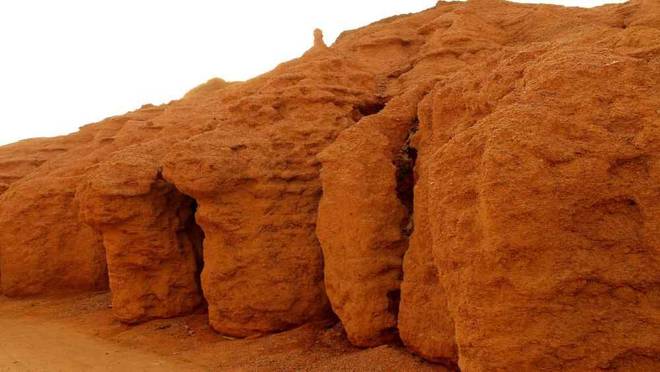
One of the important aspects of city planning all over the world is the preservation and protection of any identified historical and monumental features observed within a city either natural or man-made for aesthetic and tourism potentials. Kano city’s walls which was also referred to as “Badala” in Hausa language is one of the impressive magnificent monuments in West Africa built by the ancient settlers. The walls was built between 1095 through 1134 and completed in the middle of the 14 centaury by the three rulers, Ginjimasu, Muhammad Rumfa and Muhammad Nazaki with an estimated height of 50ft, 48ft wide and it has 15 gates 14k/m radius earth structure. The ancient rulersbuilt and sustained it for the purpose of defence against external aggression; this led to the unsuccessful attempts by some kingdoms like Katsina and Damagaram to conquer Kano. When colonial masters conquered Kano in the early 20 century, the city walls, Kano central mosque, Kurmi market and Kofar Mata dye pit were identified as important historical sites and structures in view of their years of construction. Economically Kano began to be seen as a future trade hub of West Africa by colonial masters, because of its enormous potentials such as culture, trade, population etc.
In the mid of 20 century, during the reign of Sir Muhammadu Sanusi the then emir of Kano there was serious attempt to safeguard the vulnerable city walls by instructing ward heads, gate keepers and even Kano Districts Office (DO) to monitor incessant encroachment of city walls by the neighboring communities and sanctioned any violator. With attainment of political independence in 1960 and post-independence era not much was done to preserve the structure. In fact, most of the destruction occurred between 1960 and 1990 mostly by the military regimes which the governors were seen as not indigenes of the state. However, with the return of civilian administration in 1999 the trend continued, sometimes with connivance of LGAs, traditional institutions, land allocation authority, development control department of the State Planning Authority and National Commission for Museum and monuments as the custodian of the city walls. Although, it is a glaring fact, that the State Planning
Authority lacks enough technical manpower, equipment and resources to arrest the situation. Between 1999 and 2003 apart from encroaching the city walls, other public uses like schools, cemeteries, places of worships, organized open spaces were also touched in order to serve the few interested individuals.
During Ibrahim Shekarau’s Administration a lot of attempts were made to preserve the city walls by erecting iron barriers against encroachment and revoked some allocations on public institutions and cemeteries among others. During that period, we noticed the re-construction of city walls by German government starting from Sabuwar Kofa to Dan Agundi but when the resources were exhausted, the project came to a halt. Similarly, because of its importance in 2007 UNESCO recognized Kano city walls and associated sites as historic site for the world before its eventual withdrawal recently due to improper maintenance by the Government. From 2011 to 2015 Kano has witnessed tremendous changes in preservation of monuments and physical planning. This development led to the emergence of road expansion networks and construction of bridges, under pass, modernization of city walls and gates.
The situation nowadays is worst, the present administration in its quest for generating revenue, the remaining less than 15% of the city walls reservation areas are being allocated for commercial purposes. This is a sad scenario, the land allocation made nowadays is worrisome it is high time Kano State chapter of NITP and the state government should take adequate measures in correcting the anomalies in order to sustain the future for sustainable development
Abubakar Sani, Kano, [email protected]

 Join Daily Trust WhatsApp Community For Quick Access To News and Happenings Around You.
Join Daily Trust WhatsApp Community For Quick Access To News and Happenings Around You.


